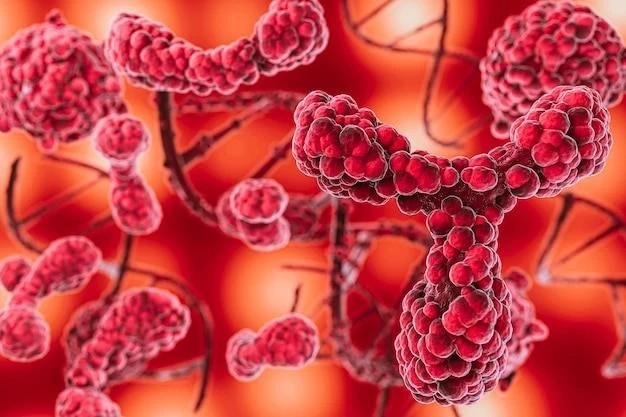Dermatocardioskeletal Syndrome Boronne Type
Dermatocardioskeletal Syndrome Boronne Type is a rare genetic disorder characterized by skin abnormalities, heart defects, and bone anomalies. This inherited condition is caused by a mutation. The article will cover diagnosis, treatment, prognosis, inheritance pattern, research, and medical care.
Introduction
Dermatocardioskeletal Syndrome Boronne Type is an extremely rare genetic disorder that falls under the umbrella of dermatocardioskeletal syndromes. This condition is characterized by a distinct combination of skin abnormalities, heart defects, and bone anomalies. Understanding the etiology, clinical features, diagnosis, treatment approaches, prognosis, inheritance pattern, and recent advances in research related to this complex syndrome is crucial for healthcare professionals, researchers, and individuals affected by this condition.
Individuals with Dermatocardioskeletal Syndrome Boronne Type often face a multitude of challenges due to the wide range of symptoms affecting different systems of the body. It is imperative to delve into the intricacies of this disorder to provide comprehensive medical care and management strategies that can improve the quality of life for those living with this condition. Advances in genetic testing and personalized medicine offer hope for better diagnoses and therapies tailored to the unique needs of patients with this syndrome.
Understanding the Condition
Dermatocardioskeletal Syndrome Boronne Type, a rare genetic disorder, presents a unique set of challenges due to its combination of skin abnormalities, heart defects, and bone anomalies. The condition is caused by specific mutations that lead to a complex interplay of symptoms affecting multiple organ systems. The pathophysiology of this syndrome involves intricate molecular mechanisms that result in the diverse clinical manifestations observed in affected individuals.
Research into the underlying genetic and cellular processes associated with Dermatocardioskeletal Syndrome Boronne Type is essential for elucidating the disease mechanisms and developing targeted treatment strategies. By studying the intricate genetic pathways involved in the syndrome, researchers aim to uncover potential therapeutic targets and diagnostic markers that can enhance patient care and outcomes. Understanding the condition at a molecular level is crucial for advancing precision medicine approaches tailored to the unique needs of individuals with this rare disorder.
Clinical Features
The clinical presentation of Dermatocardioskeletal Syndrome Boronne Type is characterized by a constellation of symptoms involving the skin, heart, and skeletal systems. Individuals affected by this rare genetic disorder may exhibit a wide range of clinical features, including but not limited to⁚
- Skin Abnormalities⁚ Unusual pigmentation, texture changes, or dermatologic lesions.
- Heart Defects⁚ Structural anomalies such as septal defects, valve abnormalities, or rhythm disturbances.
- Bone Anomalies⁚ Skeletal deformities, growth abnormalities, or bone mineral density issues.
- Other Systemic Manifestations⁚ Additional symptoms affecting various organs and systems of the body.
Understanding the spectrum of clinical features associated with this syndrome is vital for accurate diagnosis and management. Healthcare professionals must be attuned to the diverse presentations of Dermatocardioskeletal Syndrome Boronne Type to provide comprehensive care that addresses the multidimensional nature of the condition.
Diagnosis
Diagnosing Dermatocardioskeletal Syndrome Boronne Type requires a comprehensive approach that integrates clinical evaluation, genetic testing, imaging studies, and specialized assessments. Healthcare providers rely on the following diagnostic modalities to confirm the presence of this rare genetic disorder⁚
- Clinical Assessment⁚ Thorough physical examination to identify characteristic signs and symptoms associated with the syndrome.
- Genetic Testing⁚ Molecular analysis to detect specific mutations responsible for the condition.
- Imaging Studies⁚ Radiological tests such as X-rays, echocardiography, or bone scans to assess cardiac and skeletal abnormalities.
- Biopsy⁚ Tissue sampling for histological examination to evaluate skin lesions or bone abnormalities.
Collaboration between different medical specialties is often necessary for an accurate and timely diagnosis of Dermatocardioskeletal Syndrome Boronne Type. Prompt identification of the disorder enables healthcare providers to initiate appropriate treatment and management strategies tailored to the individual needs of the patient.
Treatment Approaches
The management of Dermatocardioskeletal Syndrome Boronne Type involves a multidisciplinary approach aimed at addressing the complex array of symptoms affecting different organ systems. Treatment strategies for individuals with this rare genetic disorder may encompass the following modalities⁚

- Symptom-Specific Interventions⁚ Targeted therapies to manage skin abnormalities, heart defects, and bone anomalies.
- Cardiac Care⁚ Close monitoring by cardiologists to address structural heart issues and rhythm disturbances.
- Orthopedic Interventions⁚ Orthopedic consultations for skeletal deformities, growth concerns, and bone health optimization.
- Genetic Counseling⁚ Providing guidance to individuals and families regarding the genetic basis of the condition and inheritance risks.
- Supportive Care⁚ Comprehensive support services to enhance quality of life and overall well-being.
Individualized treatment plans tailored to the specific needs of each patient are essential in managing Dermatocardioskeletal Syndrome Boronne Type effectively. Collaborative care involving specialists from various fields ensures a holistic approach to addressing the complex challenges posed by this rare genetic disorder.
Prognosis and Outlook
The prognosis for individuals with Dermatocardioskeletal Syndrome Boronne Type varies depending on the severity of symptoms, the presence of complications, and the timeliness of interventions. Due to the complexity of this rare genetic disorder, prognosis is often influenced by factors such as⁚
- Extent of Cardiac Involvement⁚ The impact of structural heart defects and rhythm abnormalities on long-term outcomes.
- Skeletal Complications⁚ The progression of bone anomalies and associated functional impairments.
- Response to Treatment⁚ The effectiveness of symptom-specific interventions and supportive therapies.
- Genetic Factors⁚ The specific mutation causing the syndrome and its implications for disease progression.
Despite the challenges posed by Dermatocardioskeletal Syndrome Boronne Type, ongoing advances in medical research and personalized healthcare offer hope for improved prognoses and enhanced quality of life for affected individuals. Close monitoring, early intervention, and multidisciplinary care can positively impact the outlook for patients with this rare genetic disorder.
Inheritance Pattern
Dermatocardioskeletal Syndrome Boronne Type follows an inheritance pattern consistent with a rare genetic disorder. The condition is typically inherited in an autosomal recessive manner, meaning that an individual must inherit two copies of the mutated gene ‒ one from each parent ⎯ to manifest the syndrome. Carriers of a single mutated gene are usually asymptomatic carriers and do not display the full spectrum of symptoms associated with the disorder;
Genetic counseling plays a crucial role in understanding the inheritance pattern of Dermatocardioskeletal Syndrome Boronne Type and assessing the risk of recurrence in families with a history of the condition. By providing comprehensive information about the genetic basis of the syndrome, counseling helps individuals and families make informed decisions regarding family planning, genetic testing, and potential implications for future generations.
Research and Advances
Ongoing research into Dermatocardioskeletal Syndrome Boronne Type continues to drive significant advances in understanding the underlying genetic mechanisms, pathophysiology, and potential treatment options for this rare genetic disorder. Recent studies have focused on⁚
- Genetic Discoveries⁚ Identifying novel gene mutations associated with the syndrome and their role in disease development.
- Molecular Pathways⁚ Elucidating the molecular pathways involved in the manifestation of skin abnormalities, heart defects, and bone anomalies.
- Therapeutic Targets⁚ Investigating potential therapeutic targets for symptom-specific interventions and disease management.
- Precision Medicine⁚ Exploring personalized medicine approaches to tailor treatments to the unique genetic profiles of affected individuals.
Advancements in genetic testing technologies, translational research, and collaborative efforts among healthcare professionals and researchers offer promise for improved diagnostics, targeted therapies, and enhanced care for individuals with Dermatocardioskeletal Syndrome Boronne Type. Research endeavors are essential in expanding our knowledge of this complex genetic disorder and fostering innovations in treatment modalities and patient outcomes.
Medical Care and Management
Effective medical care and management of individuals with Dermatocardioskeletal Syndrome Boronne Type necessitate a coordinated and holistic approach that addresses the diverse clinical manifestations of this rare genetic disorder. Key components of medical care and management include⁚
- Specialized Monitoring⁚ Regular evaluation by a multidisciplinary team of specialists, including dermatologists, cardiologists, orthopedic surgeons, and geneticists.
- Symptom-Based Interventions⁚ Tailored treatments to manage skin abnormalities, heart defects, and bone anomalies based on individual needs and disease progression.
- Cardiovascular Care⁚ Comprehensive cardiac monitoring, intervention for structural heart issues, and rhythm management as per clinical guidelines.
- Orthopedic Support⁚ Orthopedic consultations for skeletal deformities, growth concerns, and optimization of bone health.
- Psychosocial Support⁚ Access to mental health services, genetic counseling, and support groups for emotional well-being and coping strategies.
By combining evidence-based treatments, genetic insights, and personalized care plans, healthcare providers can enhance the quality of life and overall health outcomes for individuals living with Dermatocardioskeletal Syndrome Boronne Type. Continued research, advancements in medical technologies, and collaborative healthcare initiatives further contribute to optimizing medical care and management strategies for this complex genetic disorder.
